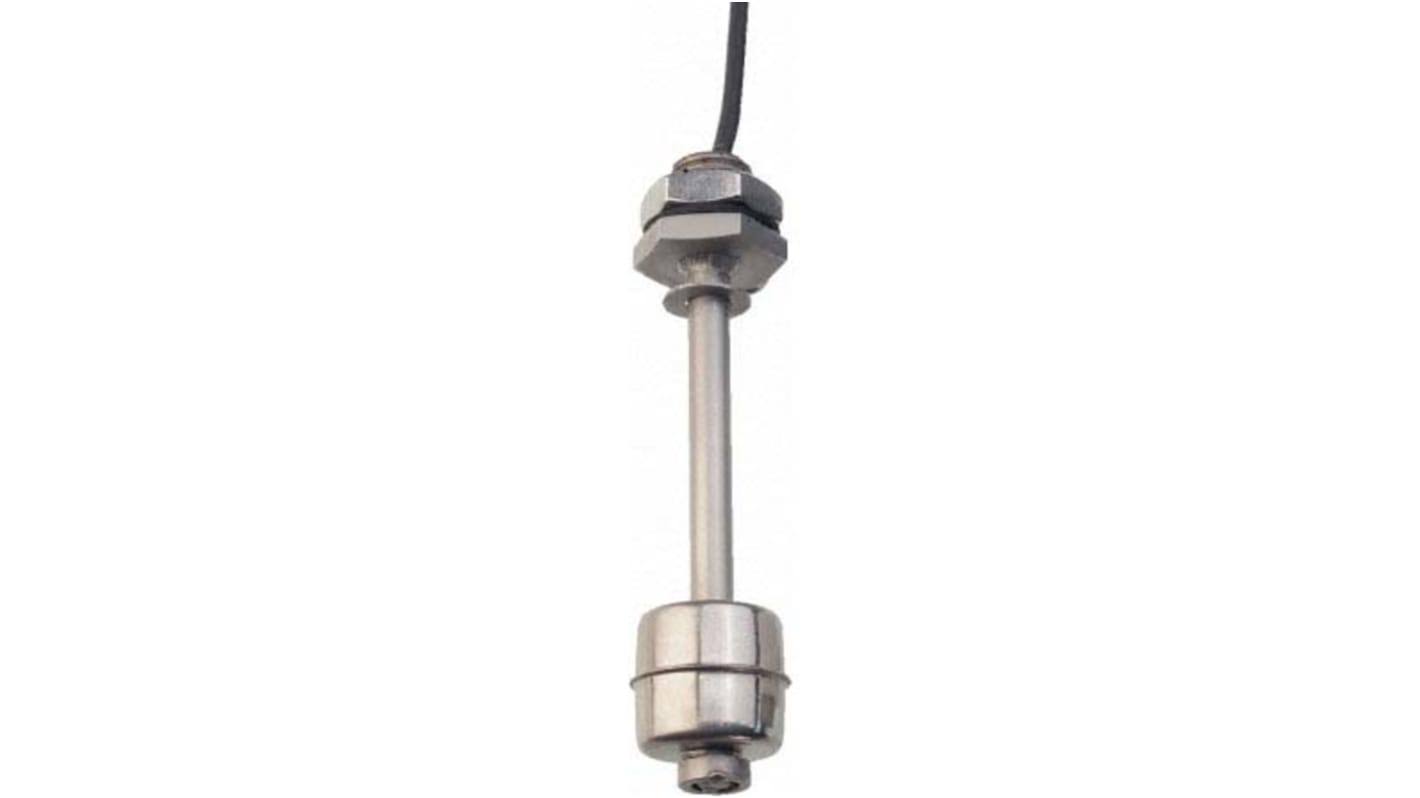Sensata / Cynergy3 SSF67 Series Vertical Nitrile Rubber (NBR) Float Switch, 1 m Cable, NO/NC, 250 V ac ac Max, 120 V dc
- RS Stock No.:
- 756-4205
- Mfr. Part No.:
- SSF67B50B150
- Brand:
- Sensata / Cynergy3

Image representative of range
Currently unavailable
We don't know if this item will be back in stock, RS intend to remove it from our range soon.
Alternative
This product is not currently available. Here is our alternative recommendation.
Each
£175.54
(exc. VAT)
£210.65
(inc. VAT)
- RS Stock No.:
- 756-4205
- Mfr. Part No.:
- SSF67B50B150
- Brand:
- Sensata / Cynergy3
Specifications
Technical Reference
Legislation and Compliance
Product Details
Find similar products by selecting one or more attributes.
Select all | Attribute | Value |
|---|---|---|
| Brand | Sensata / Cynergy3 | |
| Product Type | Float Switch | |
| Mount Type | Vertical | |
| Switch Output | NO/NC | |
| Housing Material | 316L Stainless Steel | |
| Cable Length | 1m | |
| Minimum Operating Temperature | -20°C | |
| Maximum Operating Temperature | 135°C | |
| Maximum AC Voltage | 250V ac | |
| Maximum DC Voltage | 120V dc | |
| Maximum Current | 600mA | |
| Maximum Pressure | 10bar | |
| Gasket Material | Nitrile Rubber (NBR) | |
| Standards/Approvals | No | |
| Hazardous Area Certification | No | |
| Series | SSF67 | |
| Select all | ||
|---|---|---|
Brand Sensata / Cynergy3 | ||
Product Type Float Switch | ||
Mount Type Vertical | ||
Switch Output NO/NC | ||
Housing Material 316L Stainless Steel | ||
Cable Length 1m | ||
Minimum Operating Temperature -20°C | ||
Maximum Operating Temperature 135°C | ||
Maximum AC Voltage 250V ac | ||
Maximum DC Voltage 120V dc | ||
Maximum Current 600mA | ||
Maximum Pressure 10bar | ||
Gasket Material Nitrile Rubber (NBR) | ||
Standards/Approvals No | ||
Hazardous Area Certification No | ||
Series SSF67 | ||
- COO (Country of Origin):
- CN
Sensata Cynergy3 Vertical Float Switch, 600mA, -20°C to +135°C - SSF67 Series - SSF67B50B150
Regulate liquid levels in an industrial tank with this float switch from Sensata Cynergy3. The float lies on the liquid's surface and causes the switch to turn on or off as levels rise and fall, helping to avoid overfilling or emptying. As it's a vertical switch type, it fixes to the top or bottom of a tank, making it a practical choice for use in tanks with no side access. It's commonly used with water pumps or liquid transfer pumps and as a high water alarm.
Features & Benefits
• Maximum pressure of 10 bar for use in high-pressure systems
• Stainless steel body material for resistance to corrosion and wear
• Broad operating temperature range of -20°C to +135°C for use in demanding environments
• Ample cable length of 1m for a flexible electrical connection
How does this switch open and close?
The float component has a magnet inside that nears the switch component as the liquid level changes. The force of the magnet causes the reed to open or close the switch, triggering the contacts.
Related links
- Sensata Cynergy3 SSF67 Series Vertical Stainless Steel Float Switch Direct Load 120V
- Sensata Cynergy3 SSF67PM12 Series Vertical Stainless Steel Float Switch NO/NC 120V dc
- Sensata Cynergy3 SSF67 Series Vertical Stainless Steel Float Switch 1m Cable 250V ac Max, 120V dc Max
- Sensata Cynergy3 SSF67 Series Vertical Stainless Steel Float Switch Direct Load 120V dc Max
- Sensata Cynergy3 SSF67 Series Vertical Stainless Steel Float Switch 1m Cable, NO/NC
- Sensata Cynergy3 SSF67 Series Vertical Stainless Steel Float Switch Direct Load
- Sensata Cynergy3 SSF67 Series Vertical Stainless Steel Float Switch 1m Cable
- Sensata Cynergy3 SSF67PM12 Series Vertical Stainless Steel Float Switch NO/NC 120V dc Max

